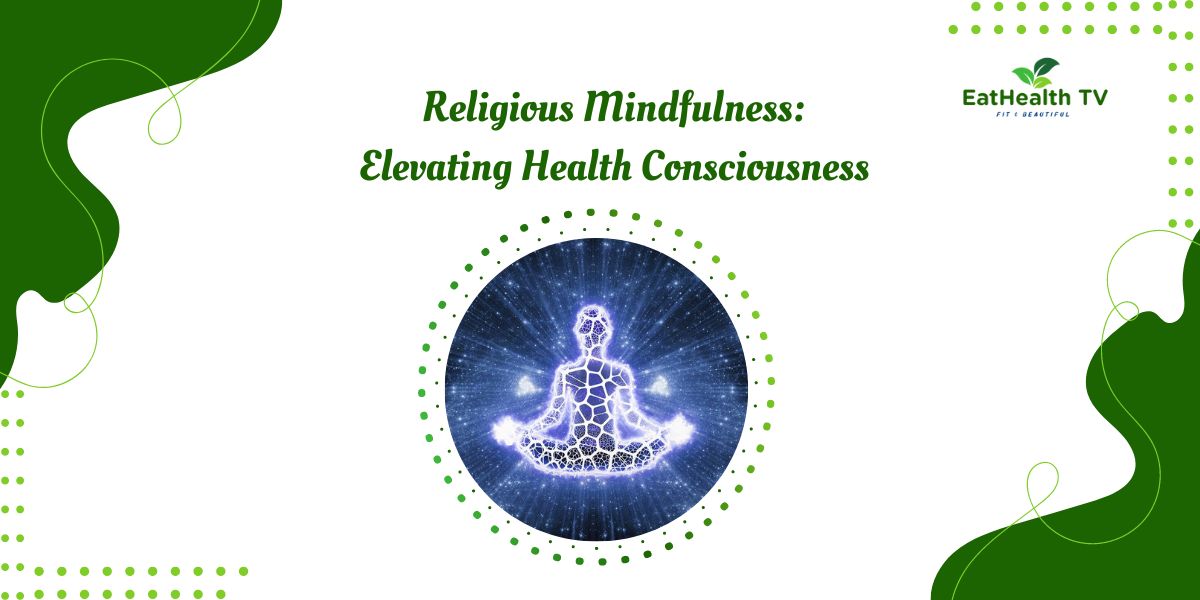Religious Mindfulness: Elevating Health Consciousness
Awakening the Soul: The Power of Religious Mindfulness

Religious Mindfulness: Elevating Health Consciousness
In today’s fast-paced world, where stress and distractions abound, the practice of mindfulness has emerged as a powerful tool for enhancing well-being and promoting mental health. While mindfulness is often associated with secular practices such as meditation and breathwork, many religious traditions also incorporate mindfulness into their spiritual teachings and practices. In this comprehensive exploration, we delve into the concept of religious mindfulness, examining how various religious traditions embrace mindfulness as a pathway to spiritual growth, health consciousness, and inner peace.
Understanding Religious Mindfulness
Mindfulness, rooted in Buddhist traditions, refers to the practice of paying attention to the present moment with openness, curiosity, and acceptance. It involves cultivating awareness of one’s thoughts, feelings, sensations, and surroundings without judgment or attachment. Religious mindfulness builds upon this foundation, integrating mindfulness practices into the spiritual teachings and practices of different religious traditions.
Key Components of Religious Mindfulness
- Presence and Awareness: At the heart of religious mindfulness is the cultivation of presence and awareness—being fully present in the moment and attuned to one’s inner experiences and surroundings. Through practices such as meditation, prayer, and reflection, individuals deepen their awareness of the divine presence and the interconnectedness of all beings.
- Intention and Purpose: Religious mindfulness emphasizes the importance of intention and purpose in one’s actions and thoughts. By aligning with the teachings of their faith tradition, practitioners cultivate mindfulness with the intention of deepening their spiritual connection, fostering compassion, and living with integrity and purpose.
- Compassion and Loving-Kindness: Compassion and loving-kindness are central themes in religious mindfulness, reflecting the core values of many religious traditions. Through mindfulness practices, individuals develop compassion for themselves and others, cultivating a sense of empathy, forgiveness, and interconnectedness with all beings.
- Gratitude and Reverence: Religious mindfulness encourages practitioners to cultivate gratitude and reverence for the sacredness of life and the blessings that surround them. By pausing to appreciate the beauty and abundance of the present moment, individuals deepen their sense of connection to the divine and foster an attitude of thankfulness and awe.
Incorporating Religious Mindfulness into Daily Life
Practicing religious mindfulness involves integrating mindfulness principles and practices into daily life, both in individual spiritual practices and communal worship. Some ways in which individuals can incorporate religious mindfulness into their daily lives include: Just as we know Mindful Eating: The Psychology Behind Nutrition Choices
- Morning Rituals: Starting the day with mindfulness practices such as prayer, meditation, or reflection can set a positive tone for the day ahead and align individuals with their spiritual values and intentions.
- Mindful Eating: Practicing mindfulness during meals involves slowing down, savoring each bite, and expressing gratitude for the nourishment provided by the food. Many religious traditions incorporate mindful eating practices into their rituals and dietary customs.
- Prayer and Contemplation: Engaging in prayer, contemplation, or recitation of sacred texts with mindfulness and intentionality deepens the spiritual connection and fosters a sense of peace and inner calm.
- Community Worship: Participating in communal worship or religious ceremonies mindfully, with a focus on presence, reverence, and gratitude, strengthens the sense of community and collective spiritual experience.
Benefits of Religious Mindfulness
The practice of religious mindfulness offers a wide range of benefits for physical, mental, and spiritual well-being. Some of these benefits include:
- Stress Reduction: Mindfulness practices have been shown to reduce stress, anxiety, and symptoms of depression, promoting emotional resilience and mental well-being.
- Improved Focus and Concentration: By training the mind to focus on the present moment, mindfulness enhances concentration, cognitive function, and attentional control.
- Enhanced Emotional Regulation: Mindfulness cultivates emotional awareness and regulation, enabling individuals to respond to challenging emotions with greater equanimity, compassion, and self-awareness.
- Deepened Spiritual Connection: Religious mindfulness deepens individuals’ spiritual connection, fostering a sense of inner peace, purpose, and alignment with their faith tradition.
Conclusion
Religious mindfulness offers a powerful pathway to spiritual growth, health consciousness, and inner peace. By integrating mindfulness practices into their spiritual lives, individuals can deepen their connection to the divine, cultivate compassion and gratitude, and enhance their overall well-being. As we embrace the transformative potential of religious mindfulness, may we cultivate presence, awareness, and reverence for the sacredness of life in all its forms.




